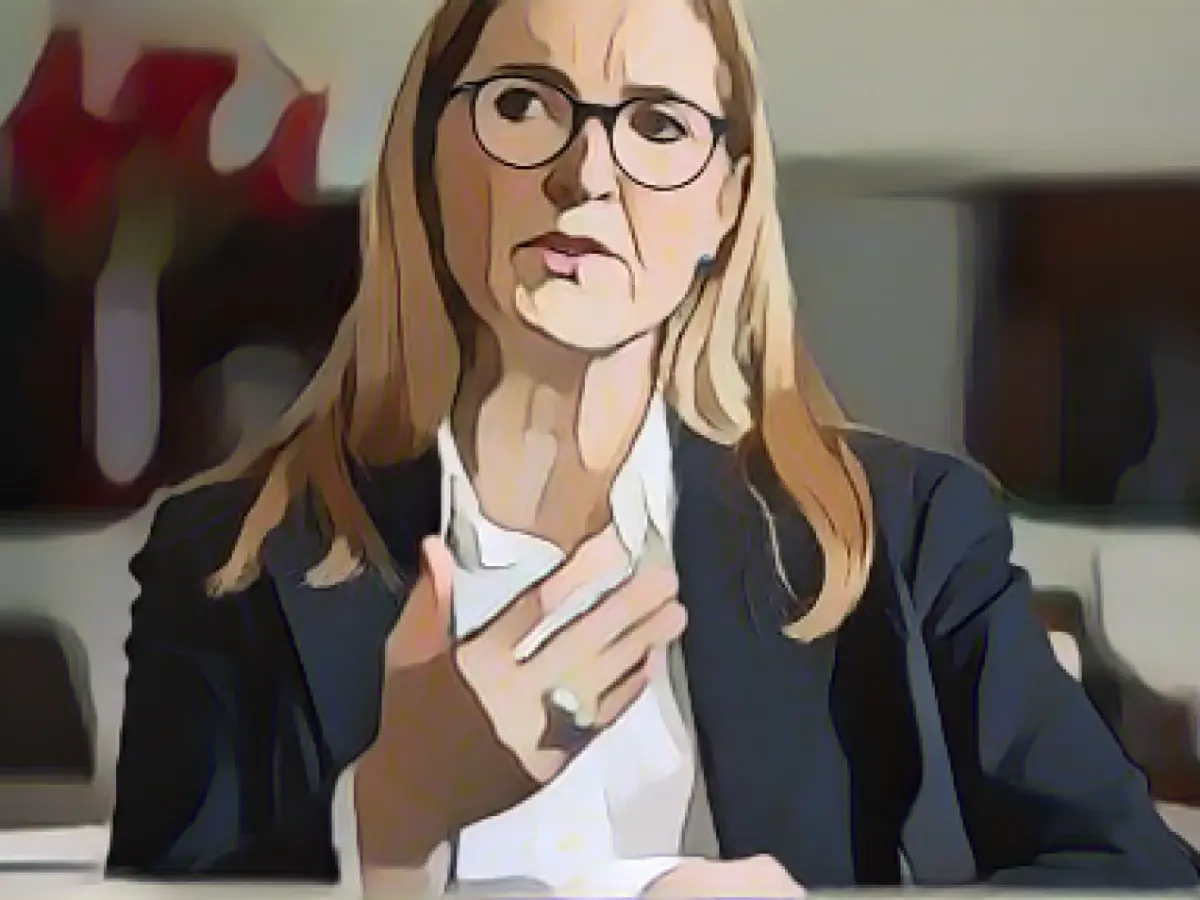Title: Reevaluating Letzte Generation: Criminal Organization or Climate Activists?
Should climate protection group, Letzte Generation, be labeled as a criminal organization in Berlin? Attorney General Margarete Koppers is currently examining if the Berlin public prosecutor's office's earlier assessment has shifted. Koppers asserts one major reason is the group's allegedly "gravier crimes," specifically the paint attacks on the famous Brandenburg Gate, resulting in substantial monetary damages.
The Munich Regional Court also played a role in this investigation. Last November, in Munich Public Prosecutor General's Office preliminary proceedings, they endorsed nationwide searches of Letzte Generation members for suspected criminal organization involvement. The judges deemed it valid that the lower Munich court had rightly assumed the possibility of the Last Generation being a criminal group before the May search.
Koppers underlined she was conducting this review with an unbiased mindset. "We're providing technical supervision here and won't replace the public prosecutor's office. We'll analyze the requested opinion. If it's defendable, I'll accept it," she clarified.
Recently, several Letzte Generation activists have faced convictions across Germany, including following street protests and coercion charges. In contrast, a conviction for forming a criminal organization could result in more severe penalties – up to five years in prison.
Last summer, Berlin's Senator for Justice Felor Badenberg ordered an examination to address if Letzte Generation should be classified as a criminal organization. The reasoning was the Potsdam district court had mentioned an initial suspicion of the climate group being a criminal organization in neighboring Brandenburg.
In Berlin, the initial suspicion was refuted by the public prosecutor's office. The Berlin Senate Justice Administration did not contest their decision, although internal "audit note" from July 11 revealed the public prosecutor's office had the scope to evaluate their claims thoroughly, and the question of Letzte Generation being a criminal organization remained unresolved.
Additional Insights:
Climate protection groups often rally for change and sacrifice certain legal boundaries. By examining these groups and how they operate, authorities can discern if they should be considered criminal organizations. This happening in the case of Letzte Generation and many other similar climate groups worldwide.
Related Reads:
- Munich Regional Court found nationwide searches of Letzte Generation members to be legal based on initial suspicion of criminal involvement.
- Attorney General Koppers' review of Berlin public prosecutor's office assessment of Letzte Generation is in light of "gravier crimes" and financial damage caused by paint attacks on Brandenburg Gate.
- Koppers ensures her review is conducted with an open mind, acknowledging the public prosecutor's office's jurisdiction and willingness to accept their opinion if found justifiable.
- Letzte Generation activists have been convicted in various German courts for offenses, but a conviction for forming a criminal organization remains unsecured.
- Berlin public prosecutor's office rejected the initial suspicion of Letzte Generation being a criminal organization, with the Senate Justice Administration not contesting their decision.
- However, internal "audit note" revealed the public prosecutor's office had the scope to evaluate their claims thoroughly, and the question of Letzte Generation being a criminal organization remains unanswered.
- Letzte Generation's climate protection demonstrations spark debate, with some questioning if the group could be classified as a criminal organization and facing the possibility of harsher penalties.








